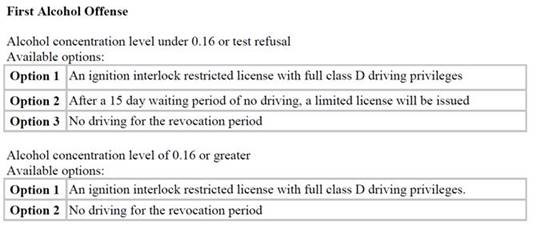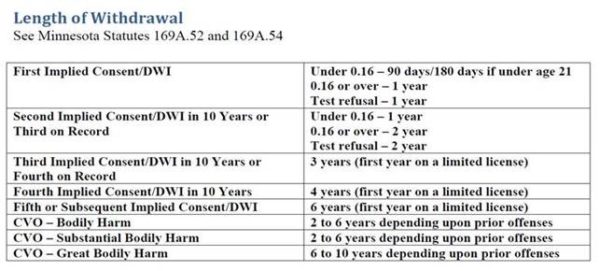Beginning in July of 2011, the State of Minnesota adopted the Ignition Interlock Device Program for DUI offenders. The program allows first-time DUI offenders with an alcohol concentration of 0.16 or above and all second-time alcohol offenders to have the option of regaining their driving privileges by participating in the program. The Ignition Interlock Device Program enhances public safety by giving the eligible alcohol offender the option of having an ignition interlock device installed on his or her vehicle, helping to ensure safe and legal driving.
An ignition interlock is a small device with a camera which is installed in a vehicle to measure an individual’s alcohol concentration level. The device is installed near the steering wheel and connected to the engine. The camera, which is part of the ignition interlock device, is located on the windshield. When a person blows into the device his/her alcohol concentration level is detected and a photo is taken. If the device detects alcohol, the vehicle will not start. The device is also designed to collect random breath samples while the vehicle is being driven. When the person is driving, the device signals with a beep for the driver to breathe into it. If any alcohol is detected during a breath sample, the device will record the violation and DVS will be notified.
The length of time a participant must be on the ignition interlock device program depends on the number of prior offenses on the driving record and the length of time the participant has lost their driving privilege. This time period may be extended for any additional ignition interlock violations. Below is a chart provided by the Minnesota Department of Public Safety illustrating which offenders may or must use the Ignition Interlock.



Contact Rinke Noonan for a free consultation, we are committed to being responsive to each and every individual’s needs.
© 2018 All Rights Reserved Rinke Noonan Ltd.


